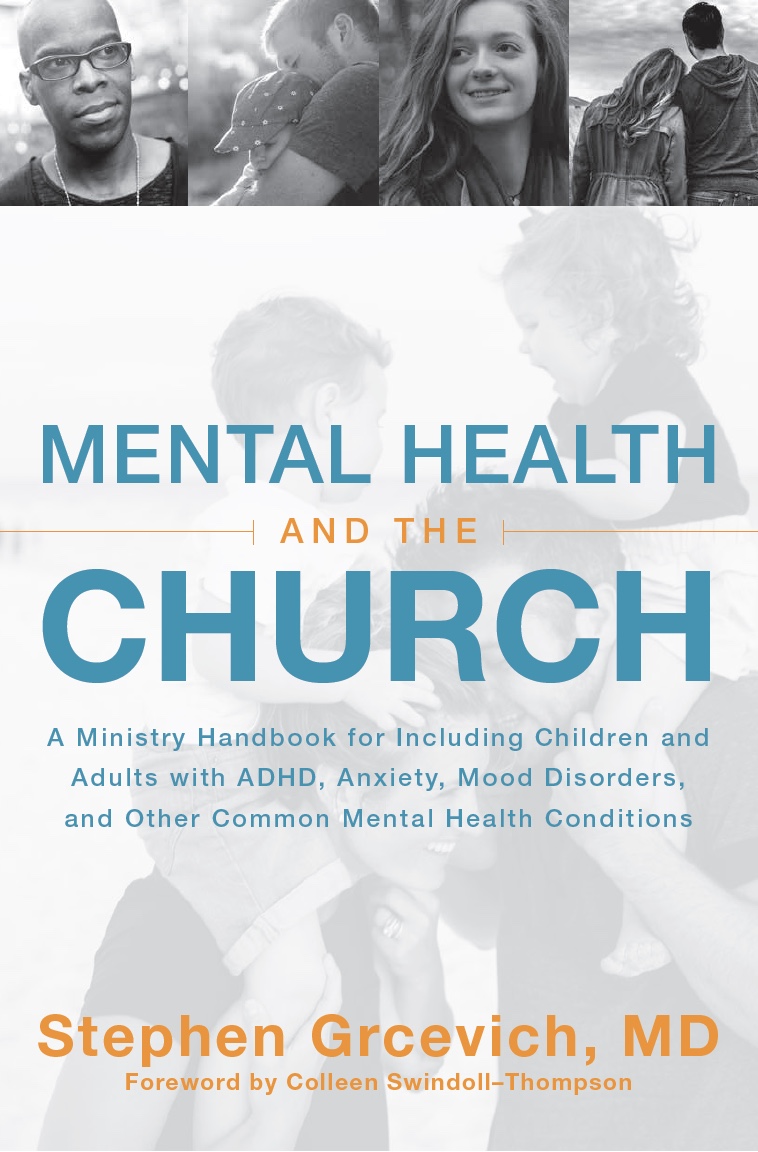 Last Sunday, we introduced you to Amy Simpson, the well-known Christian leader and communicator who recently published her new book, Troubled Minds: Mental Health and the Church’s Mission. She shared last weekend on the topic Does Your Church Inadvertently Hurt People With Mental Illness? Today, she’ll examine whether the plight of individuals and families impacted by mental illness represents “A Call to the Church.“
Last Sunday, we introduced you to Amy Simpson, the well-known Christian leader and communicator who recently published her new book, Troubled Minds: Mental Health and the Church’s Mission. She shared last weekend on the topic Does Your Church Inadvertently Hurt People With Mental Illness? Today, she’ll examine whether the plight of individuals and families impacted by mental illness represents “A Call to the Church.“
Missing Basic Needs
In at least a few documented cases, Nevada’s mental-health care system placed people on buses without adequate provisions or chaperones. Many churches use a similar strategy, without realizing they’re not fulfilling their responsibilities.
- If you’re a church leader who doesn’t happen to be a qualified mental-health professional, do you recognize and acknowledge your limitations? If yes, that’s a good thing.
- Do you refer people to professionals who can help with disorders and provide therapy and medication as necessary? This is also a good thing.
- But do you then walk away and assume your job is done?
- Mental-health care is incomplete without spiritual nurture and loving friendship. Does your church push people toward psychiatric care but leave them without adequate spiritual guidance and a kind friend to walk alongside them?
- Do you provide practical help (hospital visits, meals, rides, financial assistance) to people with other health crises but ignore these basic needs in families affected by mental illness?
Psychiatrists do not provide pastoral care. Therapists don’t make sure the bills are paid and the kids get to school. Medication does not answer questions about why God feels so far away. Just because people receive medical treatment does not mean they don’t need anything more from the church.
Neglecting Support Systems
Nevada claims it is simply busing people back to their home states and first making contact with support systems at those destinations. But investigations reveal those connections are not always made and plans for follow-up care aren’t always in place. Many churches also fail to consider what they can do to strengthen the support system for people with mental illness.
- Are you ignoring the families of people with mental illness? My own survey showed that only 56.8 percent of church leaders have reached out to the family of someone with mental illness within their congregation. Have you asked families what they need? Are you prepared to help as you can?
- Do you consult with mental-health professionals? If people in your congregation are receiving care, you can request that they sign consent forms to allow you to collaborate with professionals and discuss the best ways for your church to support these members’ mental health. If you don’t receive that written consent, you can still discuss the best ways for you to support people with various types of mental illness.
- As in Nevada’s state mental-health care system, in your church are people getting caught within a beauracratic system with no one really aware of or responsible for their needs? Are you relying on “trickle-down ministry,” focusing on your core leaders and expecting them to lead the next tier, and so on? Is anyone in your church likely to feel responsible for a good support system, or does everyone assume someone else will take care of it?
- Are you willing to adapt your schedules, plans, and expectations in order to deal compassionately with people in crisis? Or do you expect everyone to follow the same process and grow within the same system?
- Are you willing to let people with mental illness do ministry in your church? Mental illness is rarely predictable, but it is not a spiritual or relational death sentence. People affected by mental disorders don’t always fit into a tightly scripted service with high production values. It can hard to find their place in a segmented congregation. But with understanding and grace, you can give them opportunities to serve according to the gifts God has given them. Allowing people to engage in ministry when they’re functioning well, and take a break when they’re not, can provide an incredible support system.
A Call to the Church
I wrote my new book, Troubled Minds: Mental Illness and the Church’s Mission, to help the church better understand the needs of people affected by mental illness. I also wrote it to challenge the church—that’s everyone who follows Christ—to see this as part of our mission in this life.
As I’ve said in my book, “The church should not lag; it should lead the way. We serve a God who calls us to serve “the least of these” as if we were serving him (Mt 25:40). Jesus said, “Healthy people don’t need a doctor—sick people do. I have come to call not those who think they are righteous, but those who know they are sinners” (Mk 2:17). As living temples carrying God’s presence in this world, we must allow his light to shine out from us and infiltrate the darkness that surrounds so many people and drives some of them to despair.”
Let’s embrace our calling and shine the light of Christ in the darkness.
Amy Simpson is author of Troubled Minds: Mental Illness and the Church’s Mission (InterVarsity Press). She also serves as editor of Christianity Today’s Gifted for Leadership. You can find her at www.AmySimpsonOnline.com and on Twitter @aresimpson.
***********************************************************************************************************
 Mental illness is the sort of thing we don’t like to talk about. It doesn’t reduce nicely to simple solutions and happy outcomes. So instead, too often we reduce people who are mentally ill to caricatures and ghosts, and simply pretend they don’t exist. They do exist, however—statistics suggest that one in four people suffer from some kind of mental illness. And then there’s their friends and family members, who bear their own scars and anxious thoughts, and who see no safe place to talk about the impact of mental illness on their lives and their loved ones. Many of these people are sitting in churches week after week, suffering in stigmatized silence. In Troubled Minds Amy Simpson, whose family knows the trauma and bewilderment of mental illness, reminds us that people with mental illness are our neighbors and our brothers and sisters in Christ, and she shows us the path to loving them well and becoming a church that loves God with whole hearts and whole souls, with the strength we have and with minds that are whole as well as minds that are troubled. Available at Amazon and Christianbook.com.
Mental illness is the sort of thing we don’t like to talk about. It doesn’t reduce nicely to simple solutions and happy outcomes. So instead, too often we reduce people who are mentally ill to caricatures and ghosts, and simply pretend they don’t exist. They do exist, however—statistics suggest that one in four people suffer from some kind of mental illness. And then there’s their friends and family members, who bear their own scars and anxious thoughts, and who see no safe place to talk about the impact of mental illness on their lives and their loved ones. Many of these people are sitting in churches week after week, suffering in stigmatized silence. In Troubled Minds Amy Simpson, whose family knows the trauma and bewilderment of mental illness, reminds us that people with mental illness are our neighbors and our brothers and sisters in Christ, and she shows us the path to loving them well and becoming a church that loves God with whole hearts and whole souls, with the strength we have and with minds that are whole as well as minds that are troubled. Available at Amazon and Christianbook.com.
FREE GIVEAWAY! Every person who becomes a NEW e-mail subscriber to Church4EveryChild between now and May 13th is automatically entered in a drawing for a free copy of Amy’s new book, Troubled Minds: Mental Illness and the Church’s Mission. Enter your e-mail in the sidebar to your right and you’re automatically registered.




